We pit two of the best Roomba vacuums against each other today, the Roomba 675 vs 960
The Roomba 675 and 960 both received special recognition in our Best Roomba Model comparison. The 675 was marked as the Best Budget-Friendly Roomba, while the 960 was the Best Bang for Buck for its balance of features and cost.
So we know that both of these vacuums provide great value for how much they cost, but when up against each other head-to-head, which one will provide the best value? Spoiler alert for those in a hurry:
The Roomba 960 edges out the 675 with more smart features and better cleaning ability with more suction power.
| Feature | Filter Type | Scheduling | Remote | Voice Control |
|---|---|---|---|---|
| #1. Roomba 960 Our Best Pick 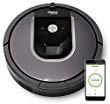 Check Price | HEPA | Yes | No | Yes |
#2. Roomba 675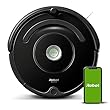
Check Price | HEPA | Yes | No | Yes |
Features
Dimensions
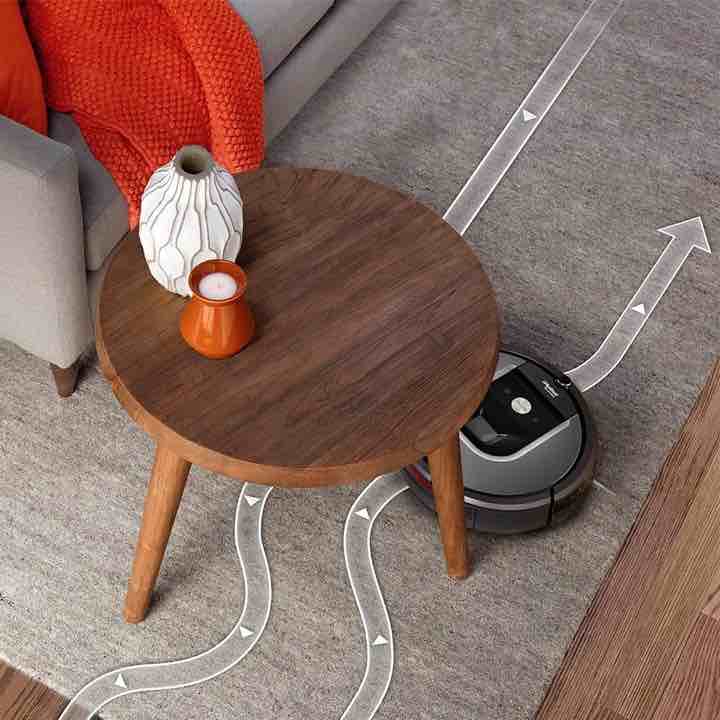
The Roomba 960 is 13.8” in diameter and 3.6” tall – just a bit wider and taller as compared to the Roomba 675. This makes it a little harder for it to go into smaller spaces to clean, and you might find that it won’t be able to fit under furniture as effectively as the 675 can.
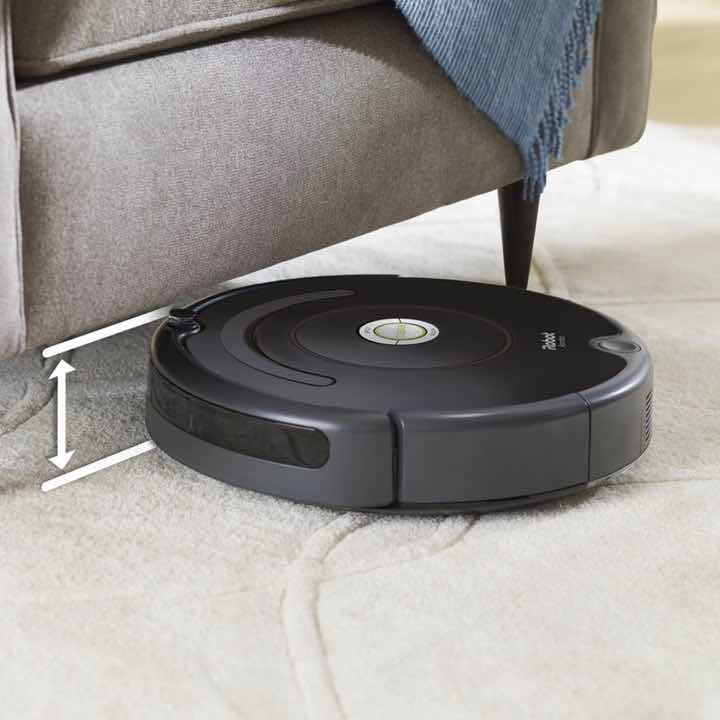
The Roomba 675 is 13.5” wide and 3.54” tall – making it easy for it to reach hard to clean spots under beds and sofas. There is a knob attached to the top of the unit that lets it know if it will fit into a certain height under furniture. Bumpers are attached to the sides and front of the unit to protect it from damage as it goes around cleaning the area.
Weight
The Roomba 960 weighs 8.6lbs. It isn’t too hefty, and while it is heavier than the 675, the unit is definitely still easy to transport and move around different places to clean.
The Roomba 675 weighs 6.77lbs. A handle on the top lid makes it easy to and transportable.
Battery and capacity
The Roomba 960’s 14.8v lithium-ion battery runs for 75 minutes from a full battery. Once the battery is almost empty, the unit finds its way back to the dock for a recharge.
The Roomba 675 also uses a 14.8v lithium ion battery and it actually runs for longer than the 960 does – at 90 minutes as compared to 75 that the 960 from a fully charged battery.
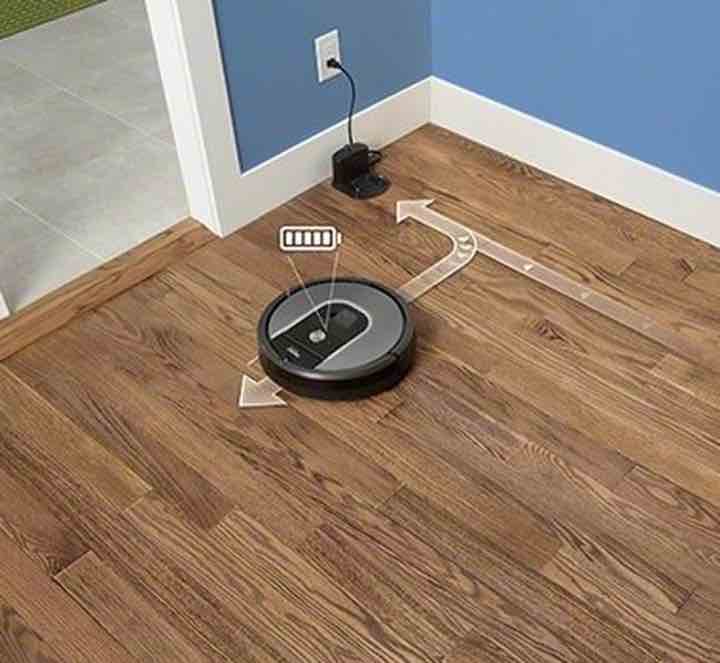
There is a difference between the Roomba 960 and the 675 when it comes to charging. The Roomba 960 automatically undocks from the charging unit and picks up cleaning again where it left off after the battery is full, while the 675 has to be manually turned on and reactivated to start cleaning again.
The 960’s auto-resume, called Recharge and Resume, ensures that your home is fully cleaned and that the job is complete before it stops work and goes back to the dock to recharge.
Filter
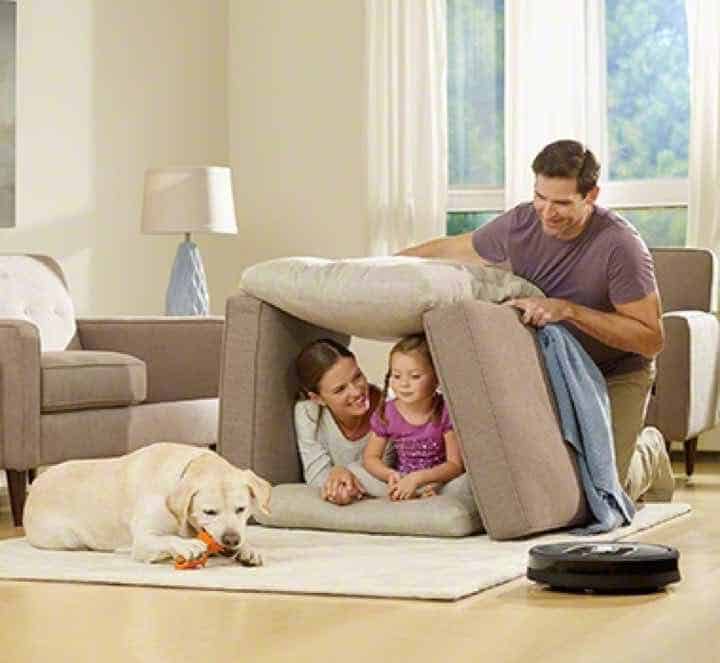
A replaceable HEPA-style filter in both the 960 and the 675 helps trap dust helps to eliminate bad odors and up to 95% of harmful allergens in your home. It is recommended to replace the filter after around 2 months of use.
Brushes, Suction & Cleaning Technology
The Roomba 675 uses Aerovac technology that optimizes airflow and pulls hair collected on the brushes into the encased dust bin, filling it more evenly and reducing the frequency of emptying out the bin.
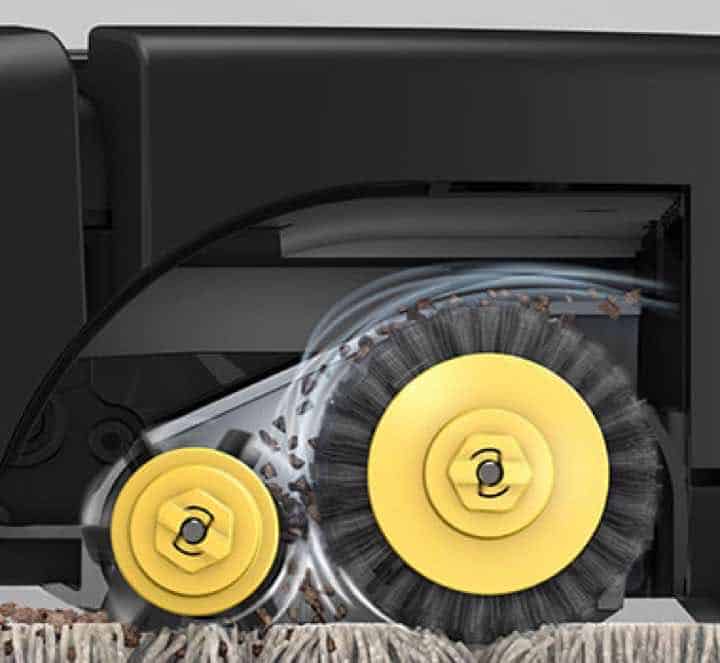
The Roomba 960 however uses the more advanced Aeroforce technology. This particular upgrade introduces debris extractors into the cleaning system. These tangle-free extractors break down tangle-causing debris like hair and fur that is collected while cleaning and a built-in sealed channel concentrate the airflow going into the suction unit, thus sucking in more dust and debris that may otherwise tangle the 960’s rotating brushes.
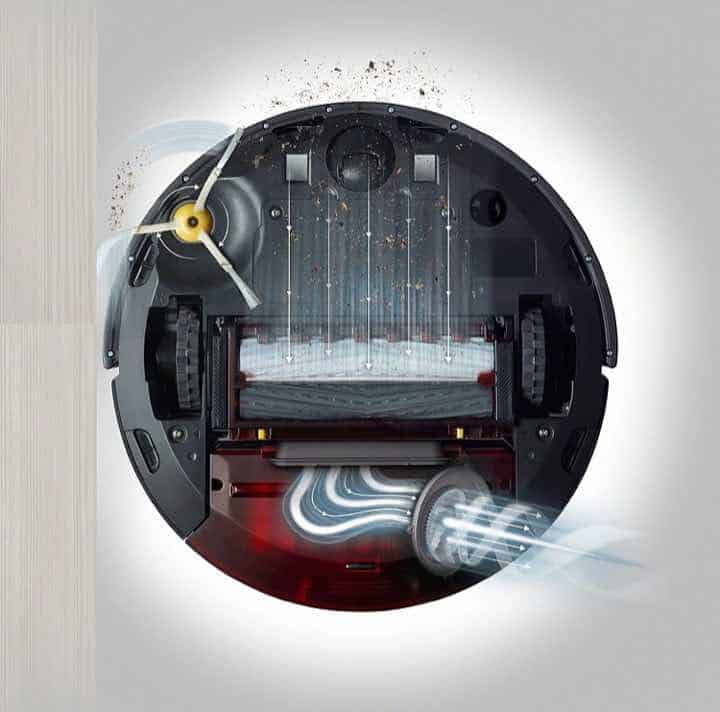
Due to technical upgrades in the 900 series, suction power has increased as much as five times as compared to the 600 series. Thanks to the high-efficiency vacuum system, this huge upgrade promises a better clean even on the dirtiest areas of your home.
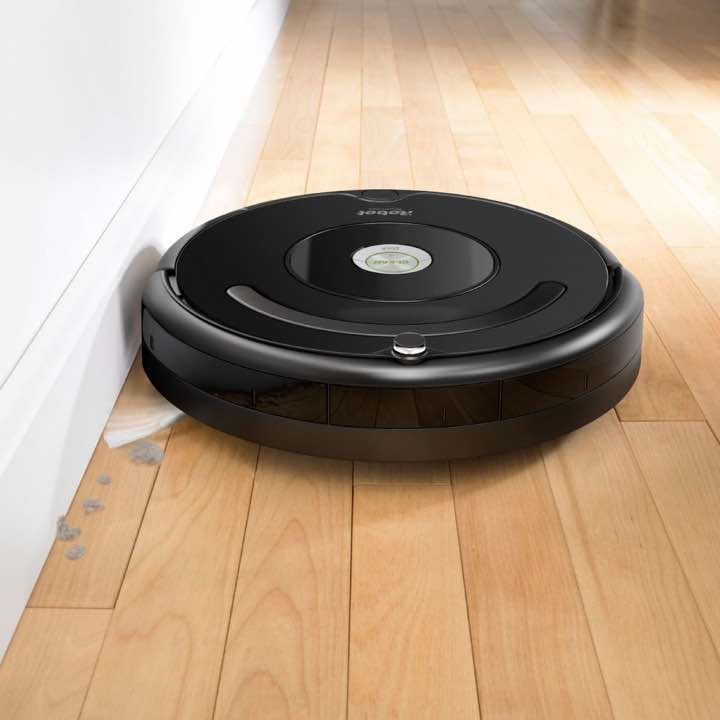
The side brushes found on both units make quick work of corners and edges. The brush itself is adaptable, adjusting the brush angle automatically when cleaning on different types of surfaces, from hardwood floors to heavily carpeted ones.
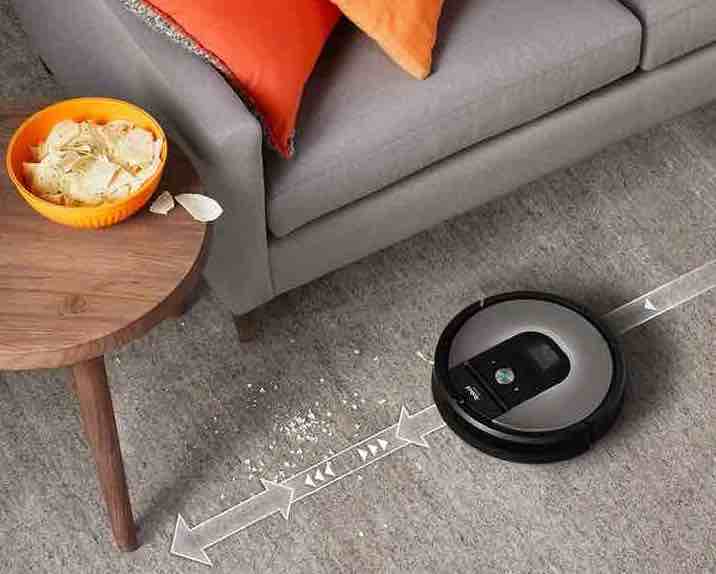
Dirt Detect Technology is used in both the Roomba 960 and the 675. This technology helps to clean the dirtier areas of your home more thoroughly by using sensors that detect the level of dirt in a particular area. There is a notable difference here between the two units; The Roomba 675 only uses acoustic sensors while the Roomba 960 uses a combination of optical and acoustic sensors – allowing it to find and clean dirty areas more effectively than the 675 can.
iAdapt technology is used by the 675 in order for it to carry out its work. This software works in conjunction with its built in sensors to allow it to clean areas thoroughly, avoid potential dangers like stairs or drops and to automatically adjust to different floor types.
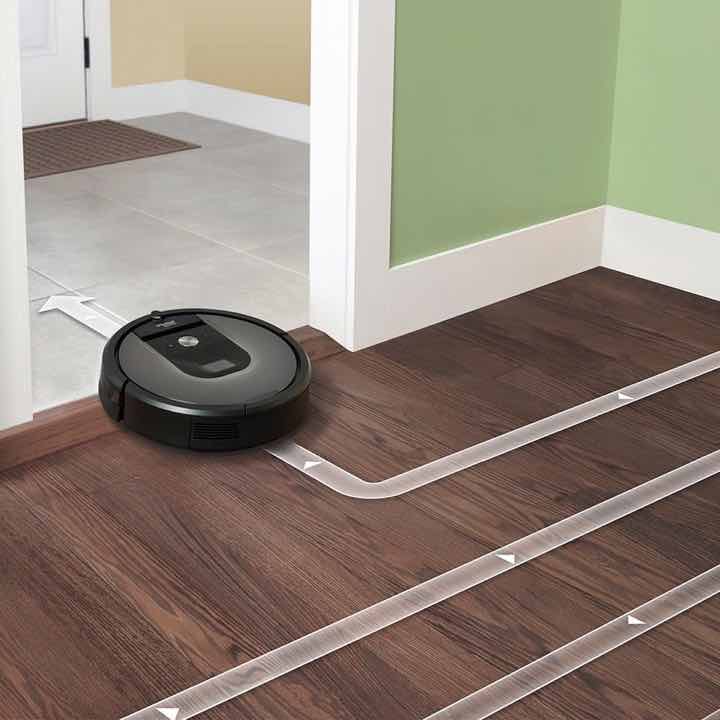
The 960 on the other hand uses an upgraded version of the software called iAdapt 2.0. With the added bonus of an optical camera, the 960 is much more effective at mapping out your home. That ensures every area of your home is covered by the robot.
A full suite of sensors adapts the unit to any piece of furniture and clutter located in its cleaning area. That allows the robot to be more effective at cleaning your home thoroughly.
App / Phone Control
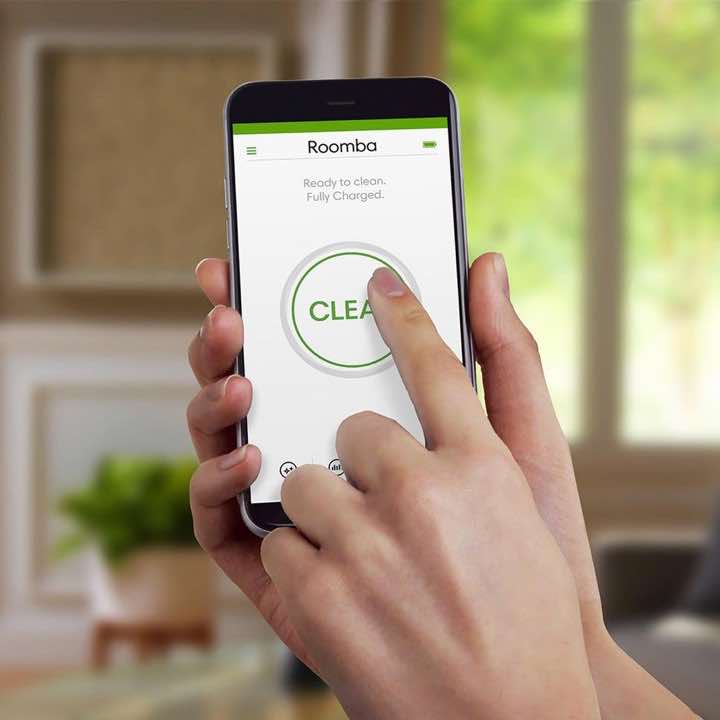
The iRobot Home App is available on both Android and iOS phones. The app connects both the 960 and the 675 through your smartphone via a Wi-Fi connection.
You are able to remotely control the units and schedule cleaning times through the app from wherever you are.
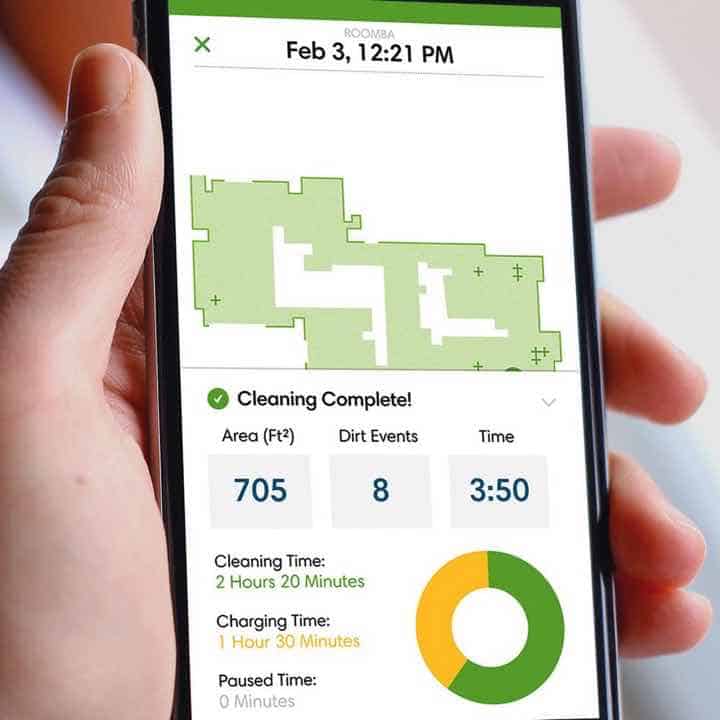
Maintenance
On the 960 and 675, you can manually empty the bin by pressing the release tab located on the back. That will detach the bin from the unit. After pouring out the collected dust and debris, you simply pop the bin back into the unit. The vacuum is then ready for its next cleaning job.
Additional Features
The Roomba 960 and work with the Dual Mode Virtual Wall Barrier. This standalone device is battery operated and is used to control the areas where the robot vacuum has access to.
There are two types of operations modes that can be selected. Virtual Wall mode blocks off access to an open doorway in your home, up to a length of 10 feet. Virtual Wall Halo is the second mode. Halo mode creates a semi-circular halo, as a no-access barrier up to 4 feet in diameter. The halo denies the robot vacuum access to a particular area in the room to protect items such as dog food bowls.
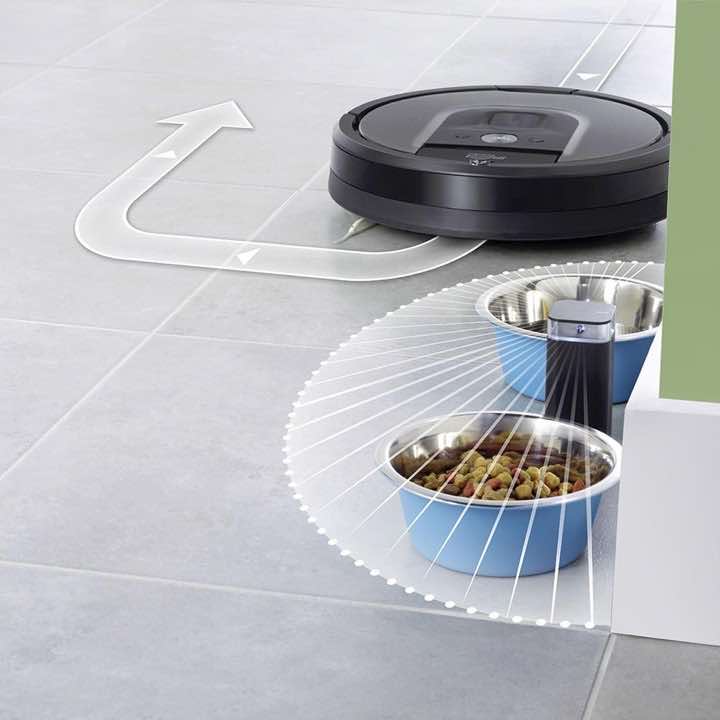
The Roomba 675 does not come with a Dual Mode Virtual Wall Barrier, but it is compatible with it. The device can be purchased separately on Amazon.
Price
The 960 has a higher price due to its upgraded specs and higher amount of features such as optical sensors and Aeroforce technology.
If you’re more price-conscious, the 675 is the robot for you. It shares some of the same features found in the 960 like self-recharging, controlling remotely through a smartphone and cliff detection.
The price difference between the two models is mainly due to the higher suction power, tangle-free brushes, and attached optical sensors found on the Roomba 960.
Roomba 960 Pros and Cons
Pros
- Optical sensors and acoustic sensors cleans dirt more effectively
- Can select the number of passes it makes over the cleaning area
- 5 times higher suction power compared to the 675
Cons
- More expensive
- Cannot navigate manually through app
Roomba 675 Pros and Cons
Pros
- Basic, important functions are featured
- Significantly lower price point
- Avoids dangerous cliffs and stairs effectively
Cons
- No optical sensors and uses older technology to map out your home
Who is the 960 and 675 for?
Roomba 960: For those willing to shell out more cash for a state-of-the-art robot vacuum with all the modern tech specs for a good, hands-off cleaning.
Roomba 675: For those who pay just enough for a basic unit that does what it says on the box – and does it pretty well.
Conclusion
The matchup of the Roomba 960 vs 675 has come to the end and we must choose a winner. At different price points, it’s expected the more expensive 960 will have more features, but are those extra features worth the extra money?
Yes it is. With a better navigation system and upgraded cleaning technology compared to the 675, buy the 960 if you have the cash to spare.
The 960 leaves your floors sparkling clean and it does not stop until it does a complete cleaning job – so you never have to worry about missing a spot!
Do check out these other 675 and 960 comparisons too:
- iRobot Roomba 960 Vs Neato Botvac D5
- iRobot Roomba 805 Vs 960
- iRobot Roomba 891 Vs 960
- iRobot Roomba 960 Vs 650
- Samsung POWERbot R7065 Vs iRobot Roomba 960
- Eufy Robovac 30c Vs iRobot Roomba 675
- iRobot Roomba 670 Vs 675
- iRobot Roomba 675 Vs 890
- iRobot Roomba 891 Vs 675
- iRobot Roomba 675 vs 677
- iRobot Roomba 675 vs Samsung POWERbot R7040
- iRobot Roomba 675 vs Shark ION R85
- iRobot Roomba 960 vs 690